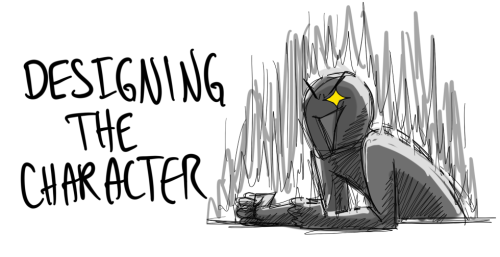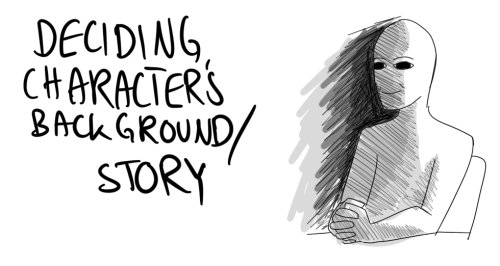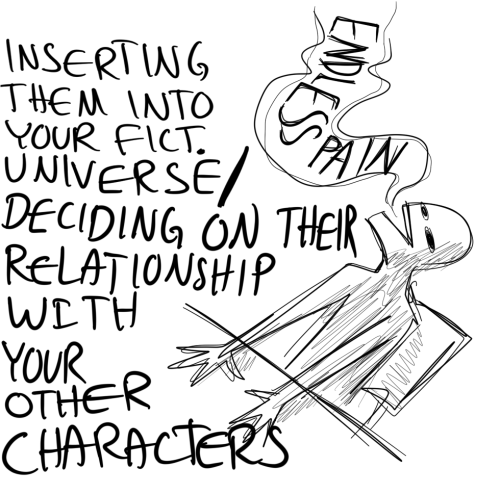20 Compelling Positive-Negative Trait Pairs
20 Compelling Positive-Negative Trait Pairs
Here are 20 positive and negative trait pairs that can create compelling character dynamics in storytelling:
1. Bravery - Recklessness: A character is courageous in the face of danger but often takes unnecessary risks.
2. Intelligence - Arrogance: A character is exceptionally smart but looks down on others.
3. Compassion - Naivety: A character is deeply caring but easily deceived due to their trusting nature.
4. Determination - Stubbornness: A character is persistent in their goals but unwilling to adapt or compromise.
5. Charisma - Manipulativeness: A character is charming and persuasive but often uses these traits to exploit others.
6. Resourcefulness - Opportunism: A character is adept at finding solutions but is also quick to exploit situations for personal gain.
7. Loyalty - Blind Obedience: A character is fiercely loyal but follows orders without question, even when they're wrong.
8. Optimism - Denial: A character remains hopeful in difficult times but often ignores harsh realities.
9. Humor - Inappropriateness: A character lightens the mood with jokes but often crosses the line with their humor.
10. Generosity - Lack of Boundaries: A character is giving and selfless but often neglects their own needs and well-being.
11. Patience - Passivity: A character is calm and tolerant but sometimes fails to take action when needed.
12. Wisdom - Cynicism: A character has deep understanding and insight but is often pessimistic about the world.
13. Confidence - Overconfidence: A character believes in their abilities but sometimes underestimates challenges.
14. Honesty - Bluntness: A character is truthful and straightforward but often insensitive in their delivery.
15. Self-discipline - Rigidity: A character maintains strong control over their actions but is inflexible and resistant to change.
16. Adventurousness - Impulsiveness: A character loves exploring and trying new things but often acts without thinking.
17. Empathy - Overwhelm: A character deeply understands and feels others' emotions but can become overwhelmed by them.
18. Ambition - Ruthlessness: A character is driven to achieve great things but willing to do anything, even unethical, to succeed.
19. Resilience - Emotional Detachment: A character can endure hardships without breaking but often seems emotionally distant.
20. Strategic - Calculative: A character excels at planning and foresight but can be cold and overly pragmatic in their decisions.
These pairs create complex, multi-dimensional characters that can drive rich, dynamic storytelling.
---
+ If you find my content valuable, consider Support This Blog on Patreon!
More Posts from Sparklingsilvermagnolias and Others
It is incredibly important to train yourself to have your first instinct be to look something up.
Don't know how to do something? Look it up.
See a piece of news mentioned on social media? Look it up.
Not sure if something is making it to the broader public consciousness, either because you don't see it much or you see people saying nobody is talking about it? Look it up.
Don't know what a word means? Look it up.
It will make you a better reader and a better writer, but it will also just make you more equipped to cope with the world.
So often, I see people talking about something as though it is the first time anyone has ever acknowledged it, when I've been reading reports about it on the news for months or years. Or I see someone totally misinterpreting an argument because they clearly don't know what a word means--or, on the other hand, making an argument that doesn't make sense because they aren't using words the right way.
Look things up! Check the news (the real news, not random people on social media)! Do your research! You (and the world) will be better for it.
a list of 100+ buildings to put in your fantasy town
academy
adventurer's guild
alchemist
apiary
apothecary
aquarium
armory
art gallery
bakery
bank
barber
barracks
bathhouse
blacksmith
boathouse
book store
bookbinder
botanical garden
brothel
butcher
carpenter
cartographer
casino
castle
cobbler
coffee shop
council chamber
court house
crypt for the noble family
dentist
distillery
docks
dovecot
dyer
embassy
farmer's market
fighting pit
fishmonger
fortune teller
gallows
gatehouse
general store
graveyard
greenhouses
guard post
guildhall
gymnasium
haberdashery
haunted house
hedge maze
herbalist
hospice
hospital
house for sale
inn
jail
jeweller
kindergarten
leatherworker
library
locksmith
mail courier
manor house
market
mayor's house
monastery
morgue
museum
music shop
observatory
orchard
orphanage
outhouse
paper maker
pawnshop
pet shop
potion shop
potter
printmaker
quest board
residence
restricted zone
sawmill
school
scribe
sewer entrance
sheriff's office
shrine
silversmith
spa
speakeasy
spice merchant
sports stadium
stables
street market
tailor
tannery
tavern
tax collector
tea house
temple
textile shop
theatre
thieves guild
thrift store
tinker's workshop
town crier post
town square
townhall
toy store
trinket shop
warehouse
watchtower
water mill
weaver
well
windmill
wishing well
wizard tower
Character Flaws and Their Meanings
Impulsiveness : Acts on instinct without careful planning. Perfectionism : Sets unrealistically high standards, leading to self-criticism. Indecisiveness : Struggles to commit to decisions or choose a path. Arrogance : Overestimates one’s abilities and dismisses others. Pessimism : Habitually expects negative outcomes in most situations. Cynicism : Distrusts the motives and sincerity of others. Overconfidence : Places excessive faith in one’s skills, often underestimating risks. Stubbornness : Resists change and refuses to adapt to new ideas. Jealousy : Feels envious of others' success or possessions. Insecurity : Experiences frequent self-doubt and a lack of confidence. Procrastination : Tends to delay tasks, often leading to missed opportunities. Passivity : Avoids taking initiative and relies on others to act. Aggressiveness : Responds with hostility or force rather than reason. Selfishness : Prioritizes personal gain over the welfare of others. Fragility : Is overly sensitive to criticism and easily discouraged. Egotism : Constantly focuses on oneself and one’s own importance. Defensiveness : Quickly rejects or rationalizes away critique or new information. Manipulativeness : Exploits others to fulfill personal needs or desires. Recklessness : Shows a careless disregard for potential risks or consequences. Resentfulness : Holds lingering bitterness and grudges over perceived wrongs. Distractibility : Finds it hard to maintain focus amid competing interests. Impatience : Lacks the willingness to wait, often spoiling opportunities to learn. Perfunctory : Performs actions in a mechanical, uninspired manner. Self-Doubt : Consistently questions personal abilities and decisions. Arbitraryness : Makes decisions based on whim rather than reason or evidence. Rigidity : Is inflexible and unwilling to consider alternative viewpoints. Gullibility : Trusts too easily, often leading to being misled or deceived. Obsession : Becomes excessively fixated on particular ideas or details. Aloofness : Maintains emotional distance, appearing detached or indifferent. Intolerance : Refuses to accept differing perspectives or lifestyles.
Writing Advice for Brainstorming
Mix genres and time periods: Experiment by combining elements from different eras or genres to create unique settings and narratives.
Use "what if" scenarios: Pose unexpected questions (e.g., What if time travel operated on emotions rather than mechanics?) to spark novel ideas.
Draw from diverse mediums: Engage with art, music, or even scientific papers to inspire unexpected plot twists.
Embrace absurdity: Let illogical or surreal ideas guide you; sometimes the wildest thoughts lead to compelling stories.
Reverse clichés: Identify common tropes in your favorite genres and deliberately invert them to create fresh perspectives.
Incorporate personal anomalies: Transform your idiosyncrasies and personal struggles into rich, multi-dimensional characters.
Use mind-mapping: Visually plot your ideas in a freeform way to uncover hidden connections between disparate elements.
In the past fifty years, fantasy’s greatest sin might be its creation of a bland, invariant, faux-Medieval European backdrop. The problem isn’t that every fantasy novel is set in the same place: pick a given book, and it probably deviates somehow. The problem is that the texture of this place gets everywhere.
What’s texture, specifically? Exactly what Elliot says: material culture. Social space. The textiles people use, the jobs they perform, the crops they harvest, the seasons they expect, even the way they construct their names. Fantasy writing doesn’t usually care much about these details, because it doesn’t usually care much about the little people – laborers, full-time mothers, sharecroppers, so on. (The last two books of Earthsea represent LeGuin’s remarkable attack on this tendency in her own writing.) So the fantasy writer defaults – fills in the tough details with the easiest available solution, and moves back to the world-saving, vengeance-seeking, intrigue-knotting narrative. Availability heuristics kick in, and we get another world of feudal serfs hunting deer and eating grains, of Western name constructions and Western social assumptions. (Husband and wife is not the universal historical norm for family structure, for instance.)
Defaulting is the root of a great many evils. Defaulting happens when we don’t think too much about something we write – a character description, a gender dynamic, a textile on display, the weave of the rug. Absent much thought, automaticity, the brain’s subsconscious autopilot, invokes the easiest available prototype – in the case of a gender dynamic, dad will read the paper, and mom will cut the protagonist’s hair. Or, in the case of worldbuilding, we default to the bland fantasy backdrop we know, and thereby reinforce it. It’s not done out of malice, but it’s still done.
The only way to fight this is by thinking about the little stuff. So: I was quite wrong. You do need to worldbuild pretty hard. Worldbuild against the grain, and worldbuild to challenge. Think about the little stuff. You don’t need to position every rain shadow and align every tectonic plate before you start your short story. But you do need to build a base of historical information that disrupts and overturns your implicit assumptions about how societies ‘ordinarily’ work, what they ‘ordinarily’ eat, who they ‘ordinarily’ sleep with. Remember that your slice of life experience is deeply atypical and selective, filtered through a particular culture with particular norms. If you stick to your easy automatic tendencies, you’ll produce sexist, racist writing – because our culture still has sexist, racist tendencies, tendencies we internalize, tendencies we can now even measure and quantify in a laboratory. And you’ll produce narrow writing, writing that generalizes a particular historical moment, its flavors and tongues, to a fantasy world that should be much broader and more varied. Don’t assume that the world you see around you, its structures and systems, is inevitable.
We... need worldbuilding by Seth Dickinson

The funny thing with abusive misogynists is that however much they hate women who defy them, they always seem to find ways to absolutely loathe the obedient ones
Write Tension that isn't just Yelling or Guns
Listen, not all tension is someone holding a knife or screaming “I’ve had enough, Derek!” at a dinner party. Real, edge-of-your-seat tension can be quiet, slow, awkward, and still make your reader grip the page like it owes them money. So here are my favorite ways to sneak tension in like a gremlin under the bed...
╰ Unanswered Questions (That the Character is Actively Avoiding)
Tension isn’t always about what’s said—it’s about what’s not said. Let your character dodge questions, interrupt, change subjects. Let readers feel the silence humming between the lines. + Great for: secrets, internal conflict, emotional gut-punches.
╰ Time Pressure Without Action Pressure
A clock ticking doesn’t always mean bombs. Sometimes it means waiting for a test result. A letter. A phone call. A knock on the door. Tension = knowing something’s coming but not knowing when. + Great for: psychological suspense, horror, relationship drama.
╰ Small Talk That’s Not Really Small Talk
When two characters are talking about the weather, but both are secretly screaming inside? That’s tension. Give one character a goal (say the thing, don’t say the thing) and the other a defense mechanism. Now sit back and watch the discomfort bloom. + Great for: slow burns, rivalries, “we’re not talking about that night, are we?”
╰ Two Characters Who Want Opposite Things But Are Pretending They Don’t
Someone wants to leave. Someone wants them to stay. Someone wants to confess. Someone is acting like nothing’s wrong. Make your characters polite when they want to scream. + Great for: emotionally repressed chaos, family drama, enemies-to-lovers.
╰ One Character Realizes Something The Other Doesn’t
A power shift = instant tension. One person knows the truth. The other’s still talking like everything’s fine. Let that dread slow-cook. Readers love being in on the secret. + Great for: betrayal, secrets, foreshadowing plot twists.
╰ Body Language That Contradicts the Dialogue
They say “I’m fine,” but they’re picking their thumbnail raw. They laugh too hard. Their smile doesn’t reach their eyes. Show the cracks forming. Let the reader sense the dissonance. + Great for: all genres. Especially emotionally loaded scenes.
╰ Echoed Phrases or Reused Words That Hit Differently the Second Time
When a character repeats something someone else said—but now it’s laced with bitterness or grief? Chills. Callback dialogue is your best friend for building subtle dread or emotional weight. + Great for: heartbreak scenes, arcs coming full circle, psychological unraveling.
╰ Characters Performing a Role to Keep the Peace
Pretending to be “the good sibling.” Faking confidence in a boardroom. Playing therapist when they’re not okay themselves. Tension thrives when someone’s holding it together with duct tape and fake smiles. + Great for: internal conflict, layered characterization, slow unravelings.
Tender, Subtle Ways to Show a Character Cares
For the characters who will literally die before saying it out loud, but their body and habits scream devotion.
Letting them walk on the inside of the sidewalk
Memorizing their coffee order
Keeping extra gloves/scarves/snacks just in case they forget theirs
Texting: “Are you home safe?” instead of “I miss you”
Tucking their hair tag in
Offering the last bite, even if they really wanted it
Taking mental notes on what makes them nervous or happy
Saying “Call me if you need anything” and meaning it
Sitting close enough that their shoulders brush
Keeping an umbrella in their bag. Just. In. Case.
Being the first to notice when something’s off
Defending them behind their back
Refusing to let them feel dumb, even for a second
Remembering little details from a single offhand comment
Turning down the music when they walk in without asking
Writing Tips Master Post
Edit: Some posts may be deleted
Character writing/development:
Character Arcs
Making Character Profiles
Character Development
Comic Relief Arc
Internal Conflict
Character Voices
Creating Distinct Characters
Creating Likeable Characters
Writing Strong Female Characters
Writing POC Characters
Building Tension
Writing Grumpy x Sunshine Tropes
Writing Sexuality & Gender
Writing Manipulative Characters
Writing Mature Young Characters
Plot devices/development:
Intrigue in Storytelling
Enemies to Lovers
Alternatives to Killing Characters
Worldbuilding
Misdirection
Things to Consider Before Killing Characters
Foreshadowing
Narrative (+ how to write):
Emphasising the Stakes
Avoid Info-Dumping
Writing Without Dialogue
1st vs. 2nd vs. 3rd Perspective
Fight Scenes (+ More)
Transitions
Pacing
Writing Prologues
Dialogue Tips
Writing War
Writing Cheating
Writing Miscommunication
Writing Unrequited Love
Writing a Slow Burn Btwn Introverts
Writing Smut
Writing Admiration Without Attraction
Writing Dual POVs
Worldbuilding:
Worldbuilding: Questions to Consider
Creating Laws/Rules in Fantasy Worlds
Book writing:
Connected vs. Stand-Alone Series
A & B Stories
Writer resources:
Writing YouTube Channels, Podcasts, & Blogs
Online Writing Resources
Outlining/Writing/Editing Software
Translation Software for Writing
Writer help:
Losing Passion/Burnout
Overcoming Writer's Block
Fantasy terms:
How To Name Fantasy Races (Step-by-Step)
Naming Elemental Races
Naming Fire-Related Races
How To Name Fantasy Places
Ask games:
Character Ask Game #1
Character Ask Game #2
Character Ask Game #3
Miscellaneous:
Writing Tips
Writing Fantasy
Miscommunication Prompts
Variety in Sentence Structure (avoiding repetition)
-
 serenitysinatra liked this · 2 weeks ago
serenitysinatra liked this · 2 weeks ago -
 fake-script liked this · 2 weeks ago
fake-script liked this · 2 weeks ago -
 maksully08 liked this · 2 weeks ago
maksully08 liked this · 2 weeks ago -
 breadnboba liked this · 2 weeks ago
breadnboba liked this · 2 weeks ago -
 kurrutta reblogged this · 2 weeks ago
kurrutta reblogged this · 2 weeks ago -
 kurrutta liked this · 2 weeks ago
kurrutta liked this · 2 weeks ago -
 cursed-dandy liked this · 2 weeks ago
cursed-dandy liked this · 2 weeks ago -
 therabiesfairy liked this · 2 weeks ago
therabiesfairy liked this · 2 weeks ago -
 metidax liked this · 2 weeks ago
metidax liked this · 2 weeks ago -
 kluski-wszechmocy liked this · 2 weeks ago
kluski-wszechmocy liked this · 2 weeks ago -
 kitawolf12 reblogged this · 2 weeks ago
kitawolf12 reblogged this · 2 weeks ago -
 renee-niles liked this · 2 weeks ago
renee-niles liked this · 2 weeks ago -
 a-cosmonaut-or-an-astronaut reblogged this · 2 weeks ago
a-cosmonaut-or-an-astronaut reblogged this · 2 weeks ago -
 yayforsimonriley liked this · 2 weeks ago
yayforsimonriley liked this · 2 weeks ago -
 sunshineswimmer23 liked this · 2 weeks ago
sunshineswimmer23 liked this · 2 weeks ago -
 quietobserver4001 liked this · 2 weeks ago
quietobserver4001 liked this · 2 weeks ago -
 problemskinnie liked this · 2 weeks ago
problemskinnie liked this · 2 weeks ago -
 engeldreamer liked this · 2 weeks ago
engeldreamer liked this · 2 weeks ago -
 airgloweffect liked this · 3 weeks ago
airgloweffect liked this · 3 weeks ago -
 forever-questioning-my-existence liked this · 3 weeks ago
forever-questioning-my-existence liked this · 3 weeks ago -
 crusaderiguess reblogged this · 3 weeks ago
crusaderiguess reblogged this · 3 weeks ago -
 crusaderiguess liked this · 3 weeks ago
crusaderiguess liked this · 3 weeks ago -
 elvthali liked this · 3 weeks ago
elvthali liked this · 3 weeks ago -
 meitamushrooms liked this · 3 weeks ago
meitamushrooms liked this · 3 weeks ago -
 canon-brainrot liked this · 3 weeks ago
canon-brainrot liked this · 3 weeks ago -
 uvdite liked this · 3 weeks ago
uvdite liked this · 3 weeks ago -
 billy-the-brainless liked this · 3 weeks ago
billy-the-brainless liked this · 3 weeks ago -
 r-0-x-4-s liked this · 3 weeks ago
r-0-x-4-s liked this · 3 weeks ago -
 morslux liked this · 3 weeks ago
morslux liked this · 3 weeks ago -
 kuetabii liked this · 3 weeks ago
kuetabii liked this · 3 weeks ago -
 harvestsoup liked this · 3 weeks ago
harvestsoup liked this · 3 weeks ago -
 despirte liked this · 3 weeks ago
despirte liked this · 3 weeks ago -
 diamni liked this · 3 weeks ago
diamni liked this · 3 weeks ago -
 crumbsispoggers liked this · 3 weeks ago
crumbsispoggers liked this · 3 weeks ago -
 queenoflanguage reblogged this · 3 weeks ago
queenoflanguage reblogged this · 3 weeks ago -
 severecreatorvoid liked this · 3 weeks ago
severecreatorvoid liked this · 3 weeks ago -
 i-set-my-autism-on-fire liked this · 3 weeks ago
i-set-my-autism-on-fire liked this · 3 weeks ago -
 ghostsflowers liked this · 3 weeks ago
ghostsflowers liked this · 3 weeks ago -
 lecomtedesaintgermain liked this · 3 weeks ago
lecomtedesaintgermain liked this · 3 weeks ago -
 endlessnebula liked this · 3 weeks ago
endlessnebula liked this · 3 weeks ago -
 uboat53 liked this · 3 weeks ago
uboat53 liked this · 3 weeks ago -
 hopelessnerdybitch reblogged this · 3 weeks ago
hopelessnerdybitch reblogged this · 3 weeks ago -
 hopelessnerdybitch liked this · 3 weeks ago
hopelessnerdybitch liked this · 3 weeks ago -
 unassumingontheoutside reblogged this · 3 weeks ago
unassumingontheoutside reblogged this · 3 weeks ago -
 huayla liked this · 3 weeks ago
huayla liked this · 3 weeks ago -
 sapphireraeburn reblogged this · 3 weeks ago
sapphireraeburn reblogged this · 3 weeks ago -
 sapphireraeburn liked this · 3 weeks ago
sapphireraeburn liked this · 3 weeks ago -
 tuamater liked this · 3 weeks ago
tuamater liked this · 3 weeks ago -
 lathanderspaladin liked this · 3 weeks ago
lathanderspaladin liked this · 3 weeks ago

119 posts










